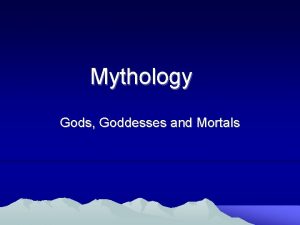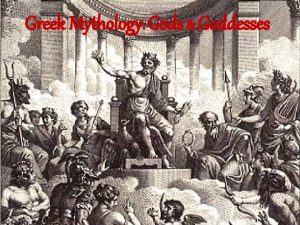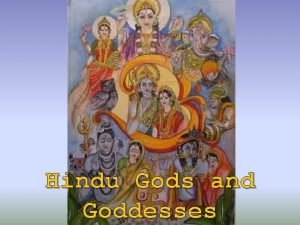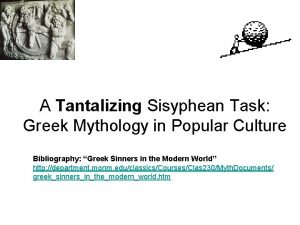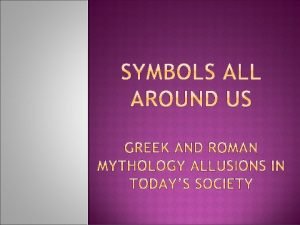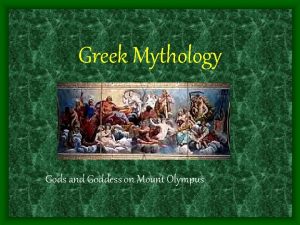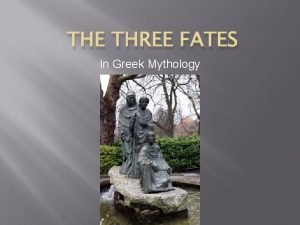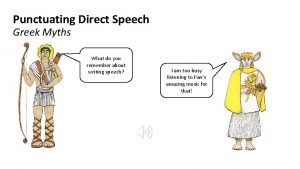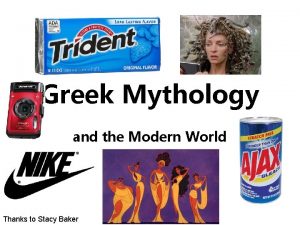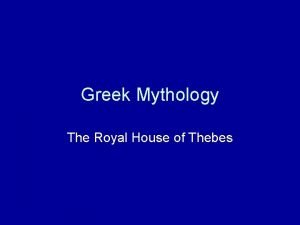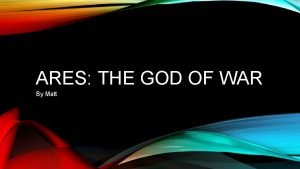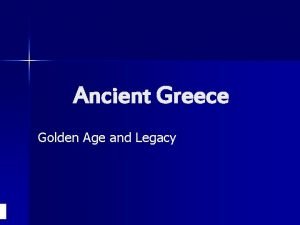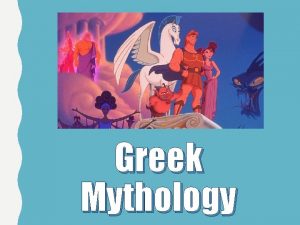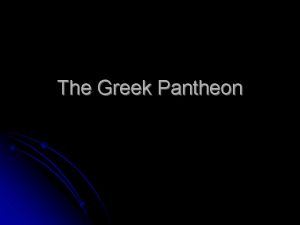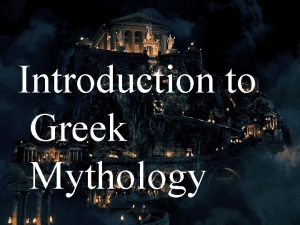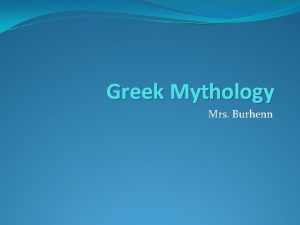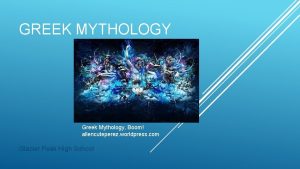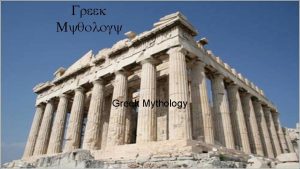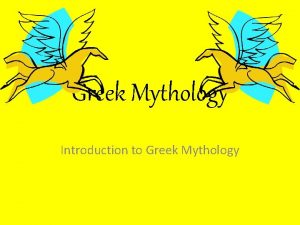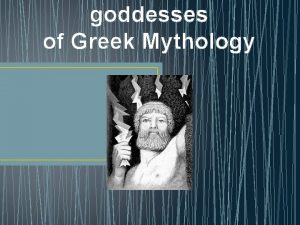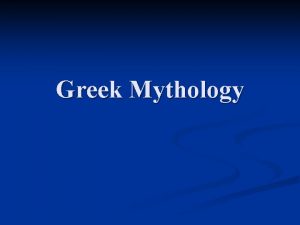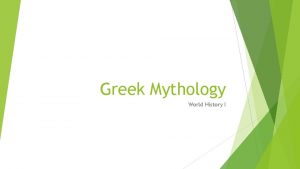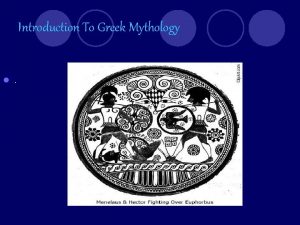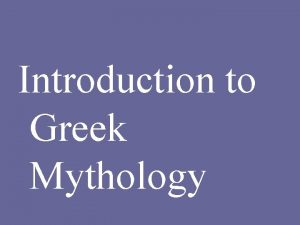Greek Mythology Greek Mythology l What is a



















- Slides: 19

Greek Mythology

Greek Mythology l. What is a myth? l. What is mythology?

What is a myth? l. A popular belief or tradition that influences/shapes the opinions of society.

What is mythology? l. A body of myths; the study of myths as they relate to the gods, demigods, and legendary heroes of a society.

Why mythology? l. Used to explain natural phenomena and life events –Examples: • Sun moving across the sky • earthquakes

Greek Mythology l. Greeks had little interest in the afterlife. l. Most Greeks wanted to live their lives so that they would be remembered long after their deaths.

Greek Mythology l. Intellectuals such as poets and philosophers were held in high regard. l. Strongly favored individualism and prized differences in personality and character.

Greek Mythology l. Myths and religions reflect individuality as well.

Greek Mythology l. Based on a polytheistic religion. l. Mythology was an important part of Greek culture, politics and art.

Greek Mythology l. Also has an impact on the culture of western civilization. l. For example, many symbols, metaphors, and words are based on Greek mythology. l. What are some examples?

Greek Gods and Goddesses l Immortal l But, possessed many human qualities and faults – Examples: • Love, hate, jealousy, anger • Constantly quarreled and completed with each other l Would often interfere in human events – Trojan War – Creation of Athens

Major Greek Gods and Goddesses Aphrodite Goddess of beauty, love, fertility Very vain because of her beauty

Major Greek Gods and Goddesses Hera Goddess of Marriage Wife of Zeus Very jealous due to Zeus cheating on her a lot

Major Greek Gods and Goddesses Zeus King of the Gods Supreme god God of the Sky - Lightening, Thunder

Major Greek Gods and Goddesses Apollo God of music, healing, prophesy Played the lute

Major Greek Gods and Goddesses Athena Goddess of wisdom, war, crafts Patron goddess of Athens

Major Greek Gods and Goddesses Hades King of the Underworld

Major Greek Gods and Goddesses Poseidon God of the sea, earthquakes, horses Many disputes with Zeus

Major Greek Gods and Goddesses Artemis Goddess of the hunt Helps women in childbirth Deadly with her arrows
 What is the greek miracle in greek mythology
What is the greek miracle in greek mythology Greek mythology chart
Greek mythology chart Greek mythology trinity
Greek mythology trinity Tantalus theoi
Tantalus theoi Dove soap greek mythology
Dove soap greek mythology Storgē greek god
Storgē greek god Olympus greek mythology
Olympus greek mythology Star wars and greek mythology
Star wars and greek mythology Bernard safran medea
Bernard safran medea Gaia greek mythology family tree
Gaia greek mythology family tree Greek mythology
Greek mythology Clotho lachesis atropos greek mythology
Clotho lachesis atropos greek mythology Circe family tree
Circe family tree Greek mythology speech
Greek mythology speech Eight brief tales of lovers
Eight brief tales of lovers Mythology in the modern world
Mythology in the modern world House of thebes
House of thebes Ares god of war
Ares god of war Epic epithet
Epic epithet Golden age greek mythology
Golden age greek mythology
